Government will mandate that your children be left vulnerable like fish in a barrel in their school; hold you down outside while they are murdered, and then blame you for owning a rifle. —Spike Cohen
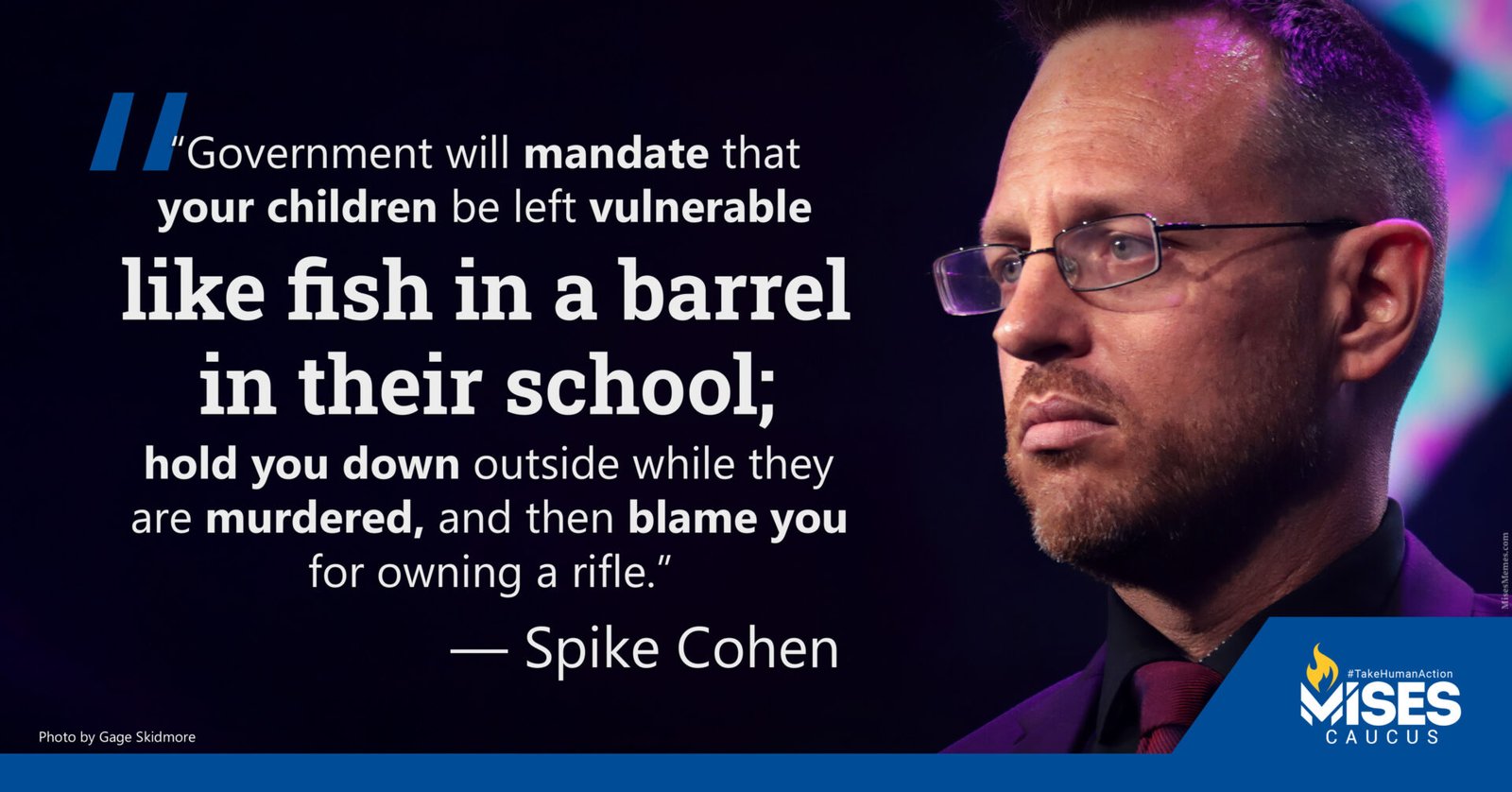

Government will mandate that your children be left vulnerable like fish in a barrel in their school; hold you down outside while they are murdered, and then blame you for owning a rifle. —Spike Cohen

All of us can play a role in a bottom-up revolution by doing everything in our power to withdraw our consent from the state. —Jeff Deist
All of us can play a role in a bottom-up revolution by doing everything in our power to withdraw our consent from the state. —Jeff Deist
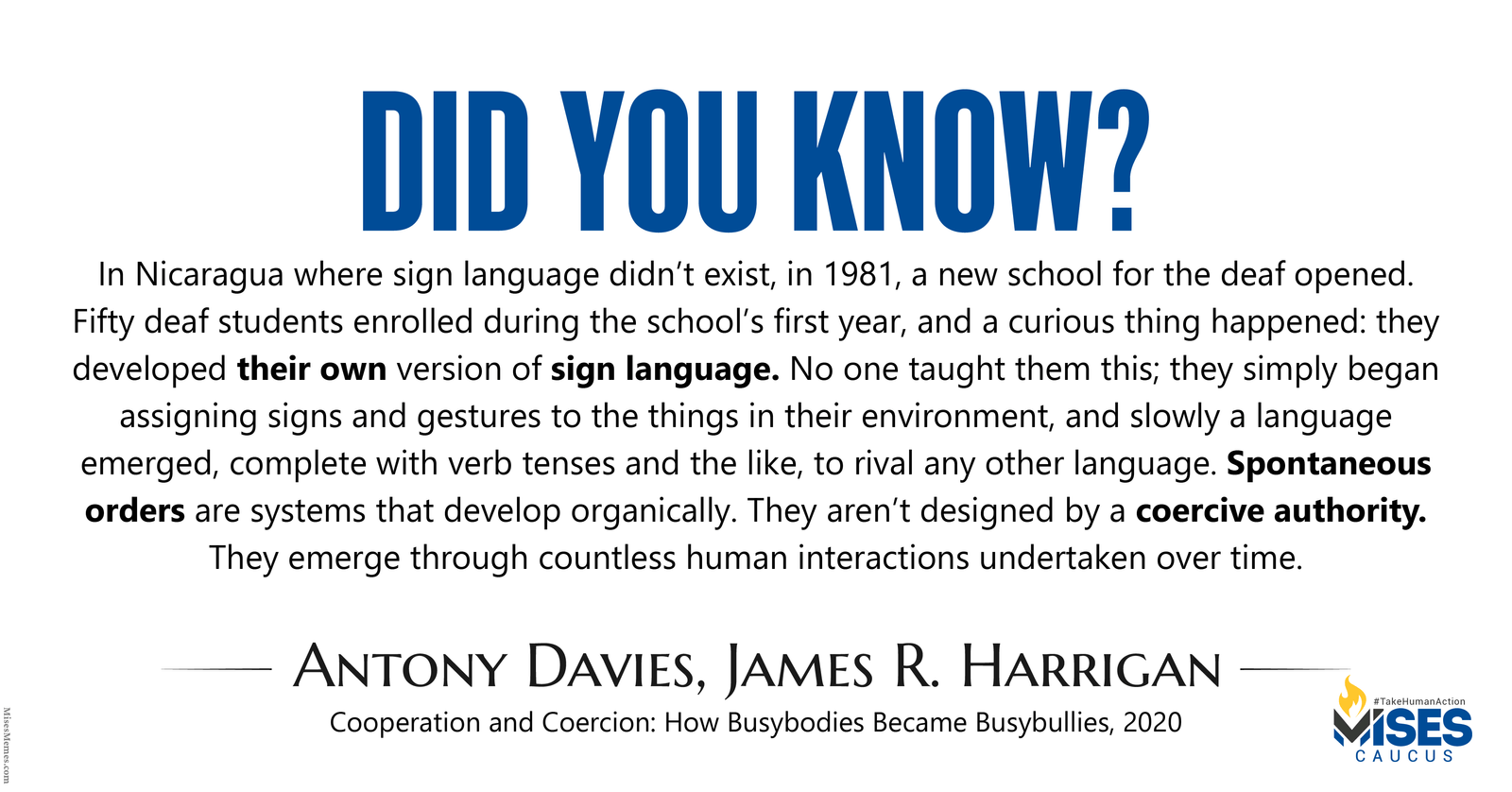
In Nicaragua where sign language didn’t exist, in 1981, a new school for the deaf opened. Fifty deaf students enrolled during the school’s first year, and a curious thing happened: they developed their own version of sign language. No one taught them this; they simply began assigning signs and gestures to the things in their environment, and slowly a language emerged, complete with verb tenses and the like, to rival any other language. Spontaneous orders are systems that develop organically. They aren’t designed by a coercive authority. They emerge through countless human interactions undertaken over time. —Antony Davies, James R. Harrigan
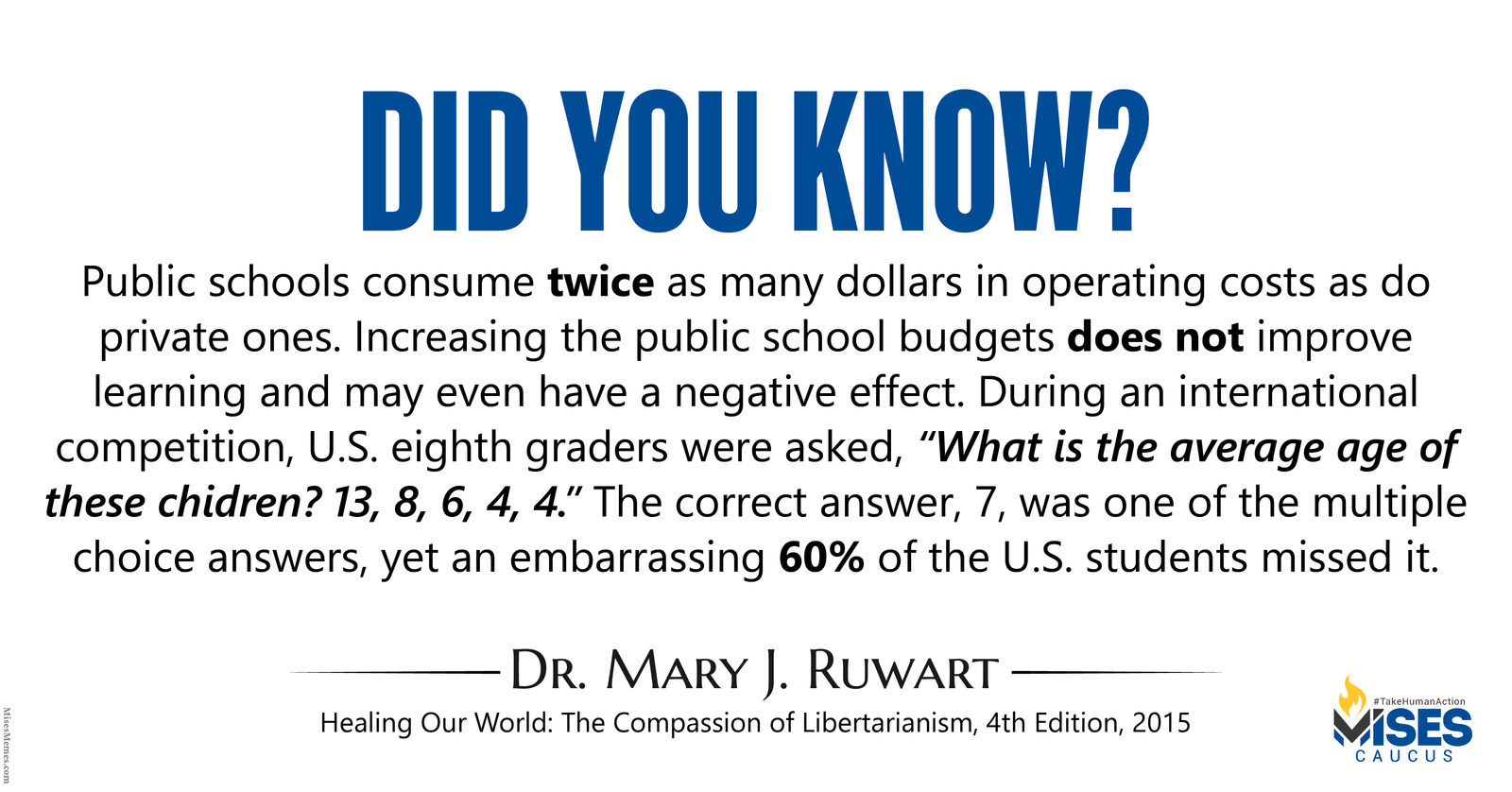
Public schools consume twice as many dollars in operating costs as do private ones. Increasing the public school budgets does not improve learning and may even have a negative effect. During an international competition, U.S. eighth graders were asked, “What is the average age of these chidren? 13, 8, 6, 4, 4.” The correct answer, 7, was one of the multiple choice answers, yet an embarrassing 60% of the U.S. students missed it. —Mary Ruwart
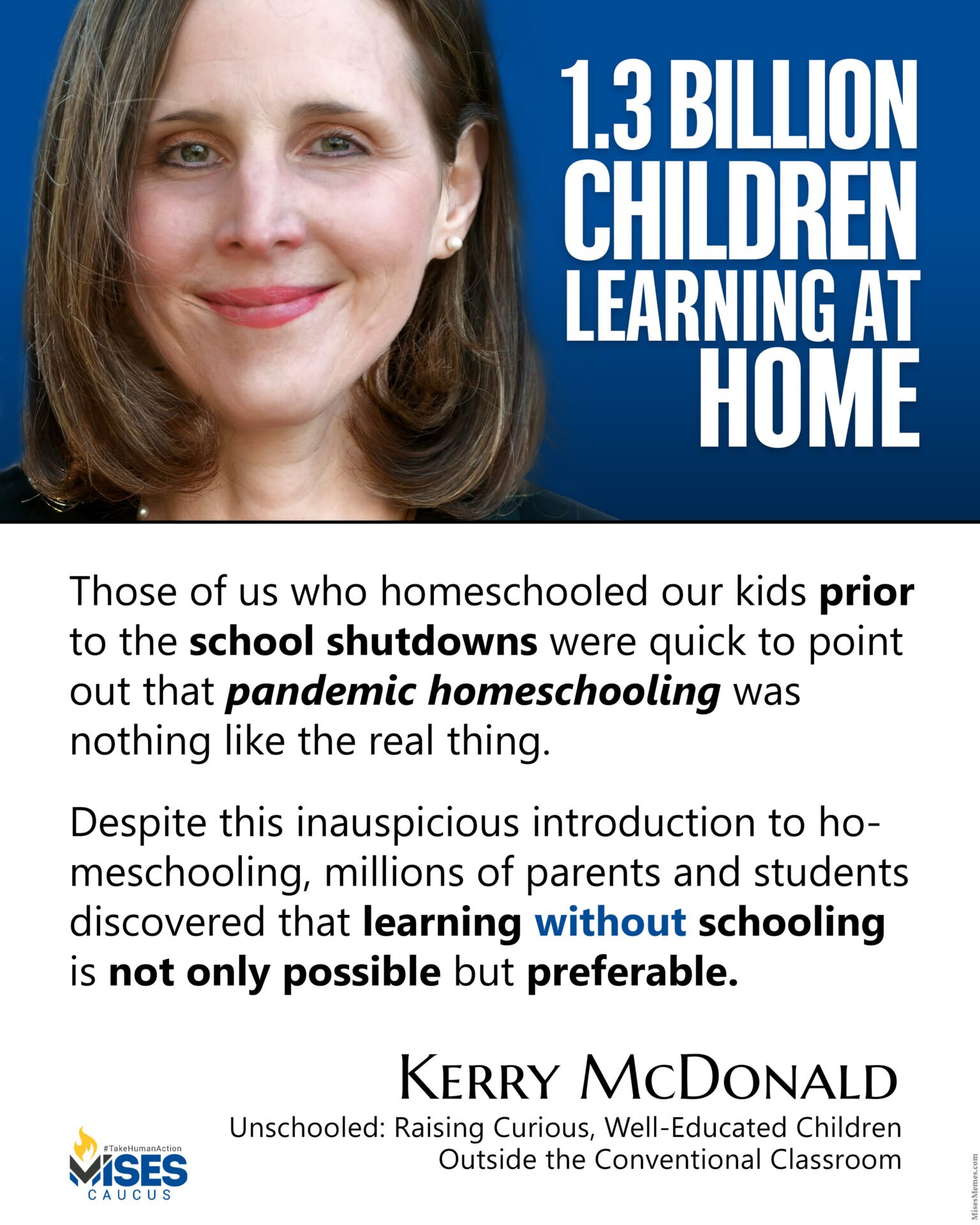
Those of us who homeschooled our kids prior to the school shutdowns were quick to point out that pandemic homeschooling was nothing like the real thing. Despite this inauspicious introduction to homeschooling, millions of parents and students discovered that learning without schooling is not only possible but preferable. —Kerry McDonald

In government, the worse an agency performs, the more money it can claim from a legislature. If state-run schools fail to educate children, then obviously they need more money… If the welfare state fails to reduce, or actually increases, poverty then obviously, say the bureaucrats, we need to expand welfare programs even further. —Thomas DiLorenzo, The Problem with Socialism
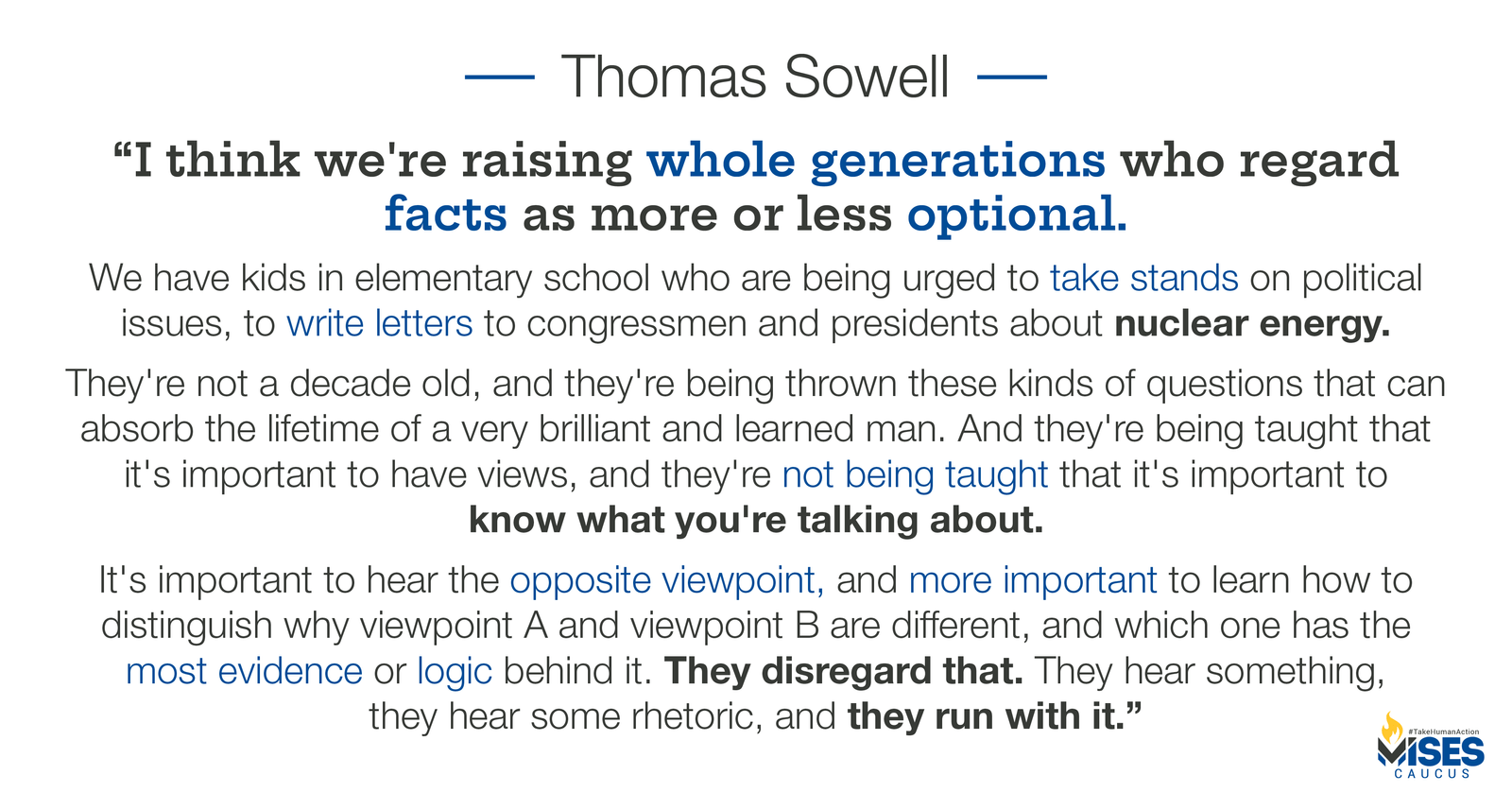
I think we’re raising whole generations who regard facts as more or less optional. We have kids in elementary school who are being urged to take stands on political issues, to write letters to congressmen and presidents about nuclear energy. They’re not a decade old, and they’re being thrown these kinds of questions that can absorb the lifetime of a very brilliant and learned man. And they’re being taught that it’s important to have views, and they’re not being taught that it’s important to know what you’re talking about. It’s important to hear the opposite viewpoint, and more important to learn how to distinguish why viewpoint A and viewpoint B are different, and which one has the most evidence or logic behind it. They disregard that. They hear something, they hear some rhetoric, and they run with it. —Thomas Sowell
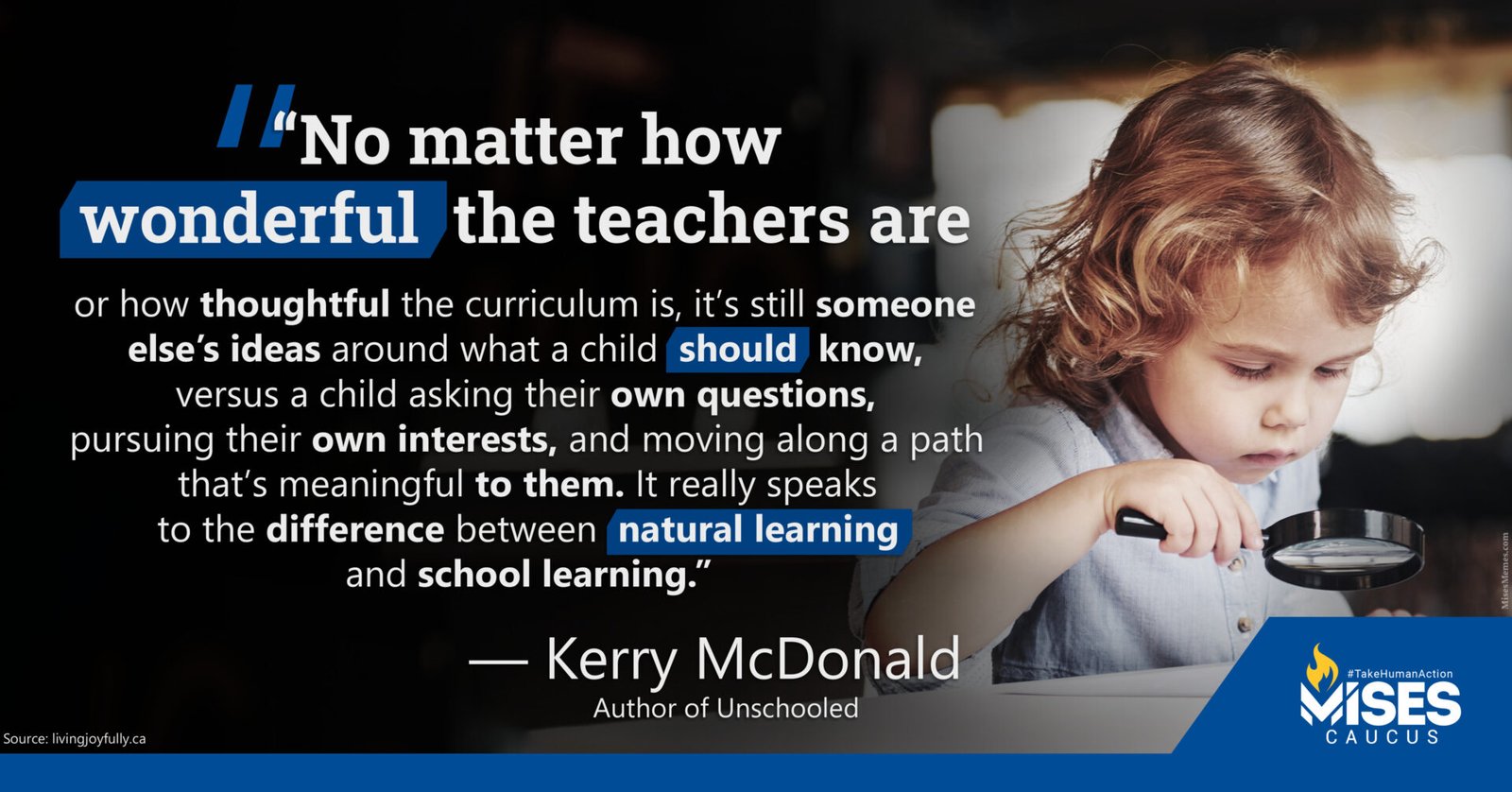
[I]t really speaks to the difference between natural learning and school learning. No matter how wonderful the teachers are or how thoughtful the curriculum is, it’s still someone else’s ideas around what a child should know, versus a child asking their own questions, pursuing their own interests, and moving along a path that’s meaningful to them. —Kerry McDonald, Author of Unschooled: Raising Curious, Well-Educated Children Outside the Conventional Classroom